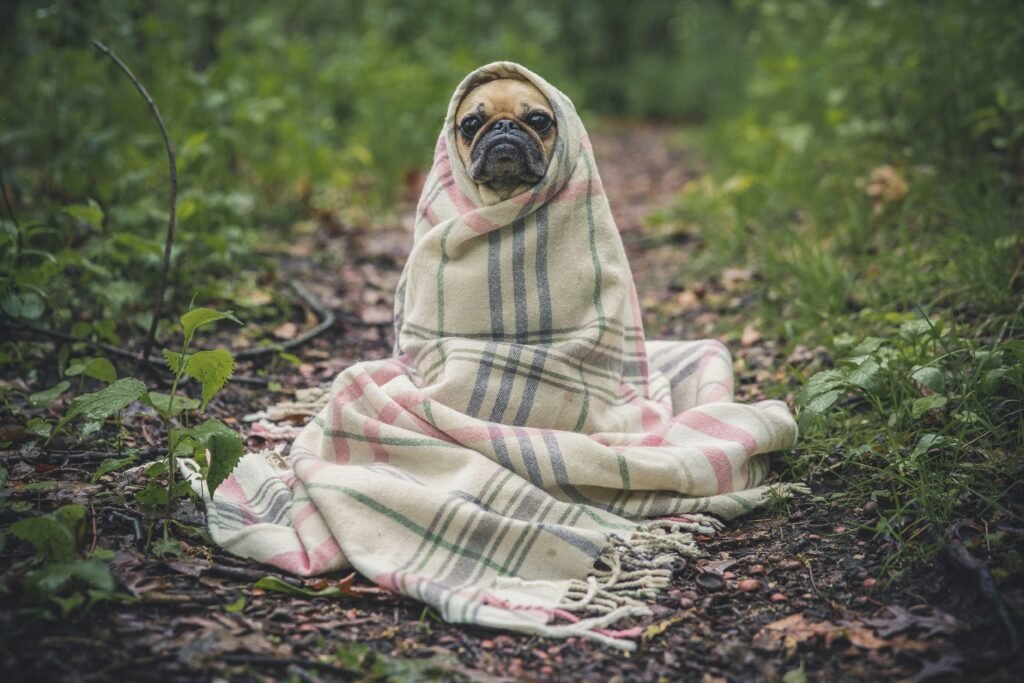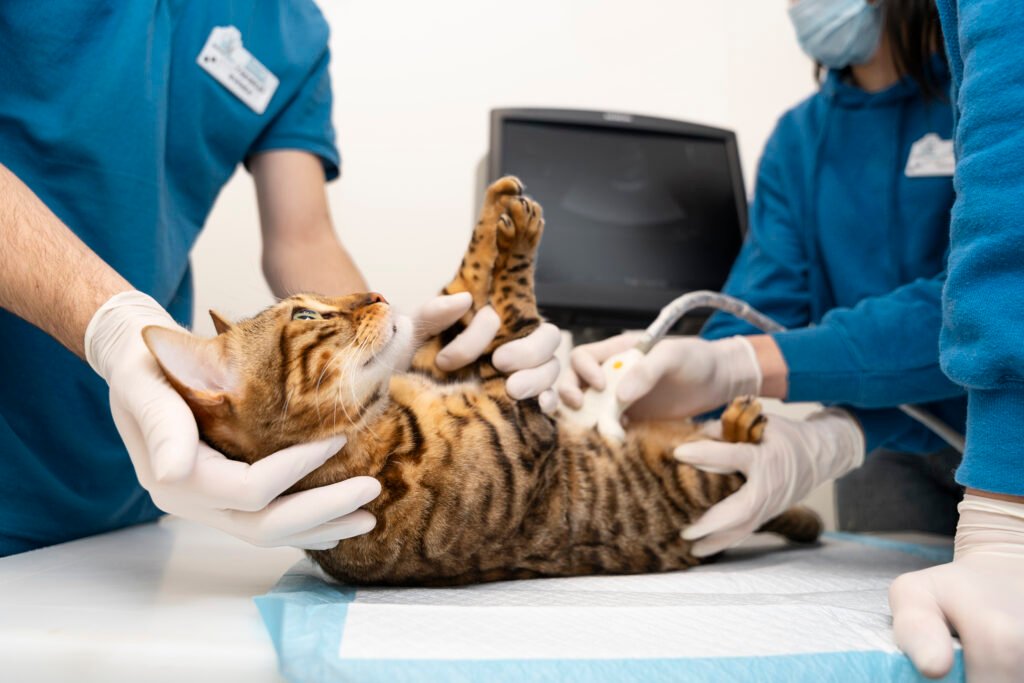Safely Vaccinating a Sick Pet
Administering vaccinations to a sick pet is rarely recommended because it can be dangerous for the health of your pets and might result in problems with vaccine efficacy. Can a rabies shot make a cat sick? Sending a deficient immune system after an existing disease, old and infected tissue – is like sending your army off to war with no protective gears or weaponry! At that time, vaccinating can over-excite the immune system of a puppy; this will lower immunity to vaccines and increase potential adverse effects. The vaccine may not be as effective and the pet could have a reaction to it, which can make its current state worse. Therefore, it is often recommended to wait till the pet has completely responded to treatment before vaccinating both for the reason of optimal protection and also prevention against adverse reaction. This decision is not one to be taken lightly and consulting with a veterinarian in order to consider the pet’s individual situation, should be considered before making this sort of call.

Rabies Shot Effects on Cats with Concurrent Disease
One must know how sickness can impact on the immune system once you are thinking of vaccinating a sick pet. In a normal, non-sick pet, this immune response will generate antibodies providing protection against future infections. This is because when a pet is sick, it already has an engaged immune system fighting the current disease or condition. This double duty will tax the immune system, stealing resources it might normally use to kick off a strong response mediated by the vaccine.
If a pet, for example is sick and has an infection or fever or other systemic body fighting it does not use energy where that should be focused to metabolize food. Due to this dose, the immune reaction could be insufficient and your pet might not develop enough immunity against the disease that relates with a specific vaccine. This can then allow the pet to be exposed and catch an illness that is specifically a target for vaccination.
In addition, the stress of vaccination on a sick pet can make adverse reactions more likely. In pets whose health may already be an issue, these reactions can become more severe so it is important to monitor your pet after application. In a sick pet, the common side effects of vaccines -such as mild fever or lethargy- could be exacerbated. In a few situations, this might even set off “full-blown” immune-mediated reactions in which the immune system — instead of focusing on protecting against infectious agents and malignant cells — starts attacking one’s own tissues.
Moreover, some diseases can be a direct contra-indication to vaccination. Some pets being treated for chronic conditions like autoimmune disease, undergoing treatment that suppresses their immune system (like chemotherapy) or whose health is already compromised may suffer exacerbation of illness from vaccinating when they are sick. These animals might also be at higher risk for vaccine-associated side effects.
In the end, if you have a sick pet and are uncertain whether or not to vaccinate it then always consider that animal vaccination should depend on its general health status, how badly they are affected by illness and balance of competing risks versus benefits encountered in treatment. If the pet is sick, veterinarians frequently suggest moving vaccinations to a later date in order that their immune system can react effectively and reduce likelihood of negative reactions.

Illnesses or Symptoms That Make Vaccination Clinically Unsafe for Pets
vaccination may be contraindicated if pets are suffering from certain types of illnesses or presenting the particular symptoms. If an animal is ill, evaluate the illness and its duration prior to vaccination. When Vaccination Can Be Delayed Circumstances where the vaccine can be delayed include immunizations with inactivated vaccines.
1.Fever and Systemic Infections
Whenever a pet has a fever, or is suffering from systemic illness (such as respiratory or gastrointestinal infection), et cetera; it’s probably best to wait until your pet recovers before giving the vaccine. Fevers indicate that the immune system is trying to fight an infection. At this time the immune system may be overburdened and a vaccination could result in reducing their protective effect or intensifying / prolonging any adverse reactions.
2.Autoimmune Diseases
Animals that have autoimmune diseases in which the immune system is triggered to attack and destroy its own tissue may be more at risk following vaccination. The idea is that the vaccine makes your immune system work, but because you have an autoimmune disease, when it comes to prepare and get ready for whatever badness might come along…..it does so at too high of a setting. In these scenarios, weight should be given to the care with which the decision is made and generally includes collaborative work with a veterinarian.
3.Chronic Illnesses
Chronically ill pets (e.g. chronic kidney disease, heart diseases and diabetes) may less likely respond effectively to vaccines. Donkeys are generally already ill and immune systems compromised. The stress of vaccination might make the problem worse and cause complications. They may also choose to postpone vaccination until the pet is in a more stable state, or they might weigh-up whether vaccinating would be worth it considering the risks.
4.Immunosuppressive therapy
A compromised immune response from pets that are immunosuppressed with prednisone, other corticosteroids or radiation therapy can increase the risk of this vaccine. Immunosuppressive therapy weakens the immune system, which not only impairs response to vaccines but also increases propensity towards adverse reactions from them.
5.Recent Surgery or Trauma
Animals that have recently experienced surgery or trauma may not be healthy enough to receive a vaccine. Their bodies are healing for the past few days and a new vaccine could hinder their recovery. This vaccination could be not beneficial and subsequently increased stress inoculation may further complicate the course of or impair healing at a later stage. Veterinarians usually advise the pet owner to wait until their pet has completely recovered before giving any vaccinations.
6.Gastrointestinal Distress
If your pet is having gastrointestinal problems (vomiting, diarrhea or losing interest in food), a weakened dehydration and nutrient loss immune system may be the cause. The patient might have ongoing even mild symptoms, which vaccinating during this time could exacerbate or dampen the immune response. It is advised not to put the pet under strain in terms of gastrointestinal health before vaccination.
So bottom line: if a dog has one of these diseases or symptoms, it can cause clinical illness. Vaccination guidelines usually recommend delaying the administration of vaccinations until the pet is in better health, allowing for an appropriate immune response to be mounted and reducing potential vaccine-related risks. They should consider the individual aspects of every case, look for signs and symptoms, observe what is going on before diagnosing or start to treat by simply prescribing anxiolytics.

Vaccination Options and Precautions for Unhealthy Pets
There are many alternatives and precautions to consider when it comes to vaccinating an animal that is not in the best health, all in order for your pet’s safety and longevity. Consideration should be given to weighing the risks and rewards, often in close conjunction with a veterinarian. Key Considerations
1.Delay Vaccination
This is the simplest and most immediate precaution — wait to vaccinate until the pet’s health has stabilized. If the disease is short-lived, like a very mild infection or trivial injury, that you can wait until your pet completely heals before giving their immune system more of an effective response to respond without just being overloaded. This strategy limits the possibility of side effects and guarantees that what is there provides the desired immunity in the body.
2.Evaluate Threat of Infection from Disease
Assess the degree of exposure to diseases which are intended to protect the pet from their medical conditions, If the pet is at low risk – eg, if it lives indoors only or in a very low-risk area, and has minimal contact with other animals- vaccination may be safely deferred. This is especially useful if the vaccine in question is non-core and perhaps not necessary for your pet depending on lifestyle, risk factors etc.
3.Break up vaccinations or utilize titers
Alternatively, veterinarians could recommend partial vaccinations or giving titer testing in some cases. Titer testing will assess what level of antibodies are currently in the blood to see if they still have immunity from their previous vaccinations. A pet with adequate immunity may not need another dose of vaccine at that time. It is especially helpful for pets with chronic disease, or those that have had vaccine reactions in the past.
4.Other Ways To Help Protect
If pets are at risk but not able to be vaccinated due to health reasons, alternative forms of protection should be considered. These might include:
- Limiting risk: while the pet is safest at home with you, there are some pretty basic no-brainer things one can do to reduce exposure; avoid bringing your dogs around other dogs as much as possible -i.e dog parks/ boarding/grooming.. etc.
- Better Hygiene Habits: Keeping the areas where your pet eats, sleeps and plays clean in order to minimize diseases.
- Maintain health: Try to help your pet with a balanced diet and some suitable supplements (if the vet gives you permission), checks regularly helps their immune system work on maximum power, guaranteeing they manage infections naturally.
5.Consult with a Specialist
In the event of complicated cases, where pets have serious chronic illness or are under immunosuppression therapy, it is always advisable to take forward more specific advice after consulting a veterinarian with additional clinical expertise in internal medicine and/or an expert on animal immunology. Experts may provide more advanced procedures for looking after the pet’s health and vaccination needs, meaning that you can be confident your risks are reduced.
6.Vaccinate in a Controlled Environment
If vaccination is required and cannot be postponed, administering the vaccine in a monitored setting (e.g., at an animal hospital) means that immediate medical care can be given if there is megaesophagus. The vaccinated animal: May have an allergic reaction similar to dogs, [the pet’s] veterinarian can also give antihistamines or corticosteroids before vaccination if he diagnoses it.
7.Aggressive Monitoring After Vaccination
For instance a sick pet should not be vaccinated if good will, under these circumstances close monitoring would be essential. Owners should monitor their dog’s swelling and, if the spider bite causes them to vomit or act unusual in any way, continued veterinary attention is required. Having the owner bring their pet to your clinic for vaccination and keeping them under observation there, even if only a short time, can also ensure that any immediate reactions are addressed in quick order.
Vaccine Type and Brand
When vaccine formulations or brands are available with lower known risks of adverse events, some vaccines may be associated with different risk profiles. For a pet with health concerns, particularly those that involve the immune system itself, then these types of vaccines without adjuvants are less likely to cause side effects and may be chosen by some veterinarians. Also, giving a one-shot vaccine instead of the combo could spare your pet from too much stress on their immune system.
Conclusion: Be Safe When Vaccinating an Unhealthy Pet Some of these can include delaying the vaccine, evaluating risk for disease, titer testing or consulting with specialists; but protecting your pet until they are safe to get their immunity if necessary.
